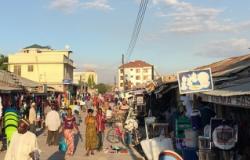
The critical development literature examines donor interventions' institutions and institutional impact. Donor agencies examine specific intervention mechanisms to improve intervention effectiveness or conformity with given development trends. Both literatures insufficiently address the potential evolution of program implementing units (PIUs) deployed by donor agencies according to the units' respective technical capacities. This article assesses PIU evolution using specific units contracted under the United States Government's PEPFAR program in Tanzania. These units evolved in their respective operational space that exists in the interactions between three stakeholder categories: (1) the contracting agency of PEPFAR; (2) relevant Tanzanian national public institutions; and (3) local Tanzanian authorities responsible for HIV/AIDS or health service delivery. This article examines how stakeholders' delegation of authority to PIUs for technical management and/or implementation of HIV/AIDS prevention and treatment services drive the units' institutional evolution. This evolution is ongoing given iterative PIU-stakeholder interaction expanding units' services along with delegated authority. In the Tanzanian case, evolved PIUs became essential to the national health system with few institutions able to re-assume the units' services or delegated authority. They also fostered a new domestic technocracy with transnational network connections to the global public health epistemic community offering new policy platform voice and exit opportunities.